follow your passion
description: scientific article published on 01 July 2016
49 results
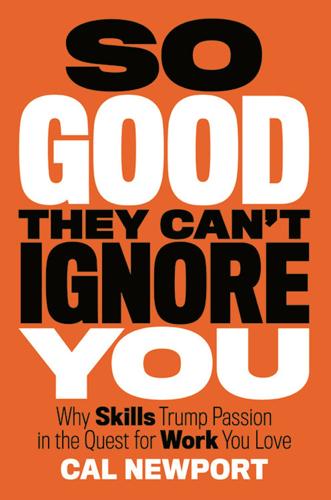
So Good They Can't Ignore You: Why Skills Trump Passion in the Quest for Work You Love
by
Cal Newport
Published 17 Sep 2012
Here’s what you can expect in the pages ahead: As mentioned, I didn’t get far in my quest before I realized, as Thomas did before me, that the conventional wisdom on career success—follow your passion—is seriously flawed. It not only fails to describe how most people actually end up with compelling careers, but for many people it can actually make things worse: leading to chronic job shifting and unrelenting angst when, as it did for Thomas, one’s reality inevitably falls short of the dream. With this as a starting point, I begin with Rule #1, in which I tear down the supremacy of this passion hypothesis. But I don’t stop there. My quest pushed me beyond identifying what doesn’t work, insisting that I also answer the following: If “follow your passion” is bad advice, what should I do instead?
…
We’ll also return to Thomas, who after his dispiriting realization at the monastery was able to return to his first principles, move his focus away from finding the right work and toward working right, and eventually build, for the first time in his life, a love for what he does. This is the happiness that you, too, should demand. It’s my hope that the insights that follow will free you from simplistic catchphrases like “follow your passion” and “do what you love”—the type of catchphrases that have helped spawn the career confusion that afflicts so many today—and instead, provide you with a realistic path toward a meaningful and engaging working life. RULE #1 Don’t Follow Your Passion Chapter One The “Passion” of Steve Jobs In which I question the validity of the passion hypothesis, which says that the key to occupational happiness is to match your job to a pre-existing passion.
…
When Stanford posted an official video, it gathered an additional 3 million views. The comments on these clips homed in on the importance of loving your work, with viewers summarizing their reactions in similar ways: “The most valuable lesson is to find your purpose, follow your passions…. Life is too short to be doing what you think you have to do.” “Follow your passions—life is for the living.” “Passion is the engine to living your life.” “[It’s] passion for your work that counts.” “ ‘Don’t Settle.’ Amen.” In other words, many of the millions of people who viewed this speech were excited to see Steve Jobs—a guru of iconoclastic thinking—put his stamp of approval on an immensely appealing piece of popular career advice, which I call the passion hypothesis: The Passion Hypothesis The key to occupational happiness is to first figure out what you’re passionate about and then find a job that matches this passion.
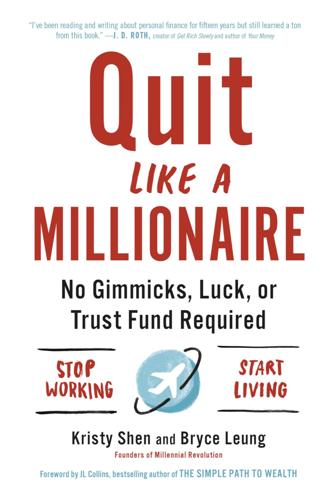
Quit Like a Millionaire: No Gimmicks, Luck, or Trust Fund Required
by
Kristy Shen
and
Bryce Leung
Published 8 Jul 2019
Yuwen Wu, “China’s Class of 1977: I Took an Exam That Changed China,” BBC News, December 14, 2017, http://www.bbc.com/news/world-asia-china-42135342. 2. Karim, “Breaking Pencils,” Pencils for Africa, February 4, 2014, http://pencilsforafrica.com/breaking-pencils/. Chapter 4: Don’t Follow Your Passion (Yet) 1. Benjamin Todd, “To Find Work You Love, Don’t (Always) Follow Your Passion,” 80,000 Hours, last updated May 2016, https://80000hours.org/articles/dont-follow-your-passion/. 2. The Writers’ Union of Canada, Devaluing Creators, Endangering Creativity, https://www.writersunion.ca/sites/all/files/DevaluingCreatorsEndangeringCreativity_0.pdf. 3. The Daily, “University Tuition Fees, 2000/2001,” https://www150.statcan.gc.ca/n1/daily-quotidien/000828/dq000828b-eng.htm. 4.
…
I’m not here to tell you things you want to hear; I’m here to tell you the truth. But remember that the rule is “Don’t follow your passion (yet).” I’m not saying you can’t ever make money doing what you love. After all, you’re only reading this because I eventually was able to become an author. But you have to follow the rest of my advice first. Doing what you love and hoping for money to follow is risky. Follow the money first, and you can do what you love later. Not all degrees are created equal. Don’t follow your passion (yet). Follow the POT. And, yes, I wrote this entire chapter just to be able to close with that line.
…
Standing in the autographing area at BookExpo America in New York City, I couldn’t believe that after seven years in the writing trenches, I’d made it. Bryce and I were newly minted authors and there was a whole line of people waiting for a signed copy of Little Miss Evil, our children’s novel. Remember how I said in chapter 4, “Don’t follow your passion (yet)”? Well, I’ve been saving that “yet” for now. Once you’ve become financially independent, you are finally free to follow your passion, whatever that may be. Achieving your dream is the greatest feeling in the world—when you don’t have to worry about surviving on cans of cat food. Because that’s exactly what would’ve happened if I had pursued my passion before becoming financially independent.
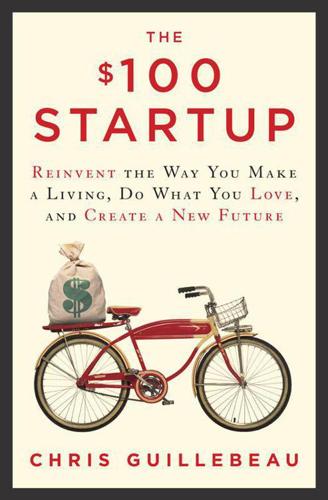
The $100 Startup: Reinvent the Way You Make a Living, Do What You Love, and Create a New Future
by
Chris Guillebeau
Published 7 May 2012
Are there other businesses serving this market (usually a good thing) but not in the same way you would? Note: Chapter 6 looks at market testing in more detail. If you’re not sure how to answer the marketplace questions, stay tuned. When I asked our group of unexpected entrepreneurs about the follow-your-passion model, I frequently heard a nuanced answer. Almost no one said, “Yes! You should always follow your passion wherever it leads.” Similarly, almost no one dismissed the idea out of hand. The nuance comes from the idea that passion plus good business sense creates an actual business. To understand how passion can sometimes translate into a profitable business, look at the chart on this page.
…
HD62.5.G854 2012 658.1′1—dc23 2012003093 eISBN: 978-0-307-95154-0 Illustrations: Mike Rohde Jacket design: Michael Nagin Jacket photography: Comstock/Getty Images v3.1 This book is for: those who take action and those who provide the inspiration ROAD MAP Cover Title Page Copyright Dedication PROLOGUE: Manifesto A short guide to everything you want. PART I UNEXPECTED ENTREPRENEURS 1. Renaissance You already have the skills you need—you just have to know where to look. 2. Give Them the Fish How to put happiness in a box and sell it. 3. Follow Your Passion … Maybe Get paid to do what you love by making sure it connects to what other people want. 4. The Rise of the Roaming Entrepreneur “Location, location, location” is overrated. 5. The New Demographics Your customers all have something in common, but it has nothing to do with old-school categories.
…
The first time we announced a workshop, it sold out in ninety minutes. We then offered spots in another workshop that wouldn’t be held for several months, and it sold out before lunchtime. Since it was clear we had found a demand for this information, I dug deeper. While hosting the workshops, I became interested in the “follow-your-passion” model—the idea that successful small businesses are often built on the pursuit of a personal hobby or interest. I conducted interviews with entrepreneurs all over the world and documented their stories for an online course called the Empire Building Kit. The course was the inspiration for launching the project on a wider scale and then for writing this book.
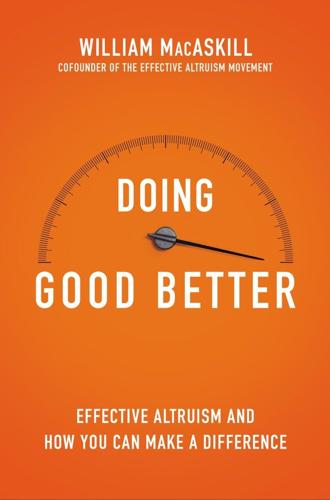
Doing Good Better: How Effective Altruism Can Help You Make a Difference
by
William MacAskill
Published 27 Jul 2015
At its most extreme, the talk around career choice sounds similar to the talk around romance: when you find your perfect fit, you’ll just know. Taken literally, however, the idea of following your passion is terrible advice. Finding a career that’s the right “fit” for you is crucial to finding a career, but believing you must find some preordained “passion” and then pursue jobs that match it is all wrong. Ask yourself, is following your passion a good way to achieve personal satisfaction in the job you love? Should you pick a career by identifying your greatest interest, finding jobs that “match” that interest and pursuing them no matter what?
…
SIX Why Voting Is Like Donating Thousands of Dollars to Charity: Question #5: What are the chances of success, and how good would success be? PART TWO EFFECTIVE ALTRUISM IN ACTION SEVEN Overhead Costs, CEO Pay, and Other Confusions: Which charities make the most difference? EIGHT The Moral Case for Sweatshop Goods: How can consumers make the most difference? NINE Don’t “Follow Your Passion”: Which careers make the most difference? TEN Poverty Versus Climate Change Versus . . . : Which causes are most important? CONCLUSION Becoming an Effective Altruist: What should you do right now? APPENDIX Thinking Like an Effective Altruist: The five key questions of effective altruism.
…
If, for example, encouraging someone to buy fair-trade causes that person to devote less time or money to other, more effective activities, then promoting fair-trade might on balance be harmful. • • • In this chapter, we’ve seen that the benefits of ethical consumerism are often small compared to the good that well-targeted donations can do. In the next chapter, we’ll look at an area where you really can make an astonishing difference: your career. NINE DON’T “FOLLOW YOUR PASSION” Which careers make the most difference? As Peter Hurford entered his final year at Denison University, he needed to figure out what he was going to do with his life. He was twenty-two, majoring in political science and psychology, and he knew he wanted a career that would both be personally satisfying and would make a big difference.
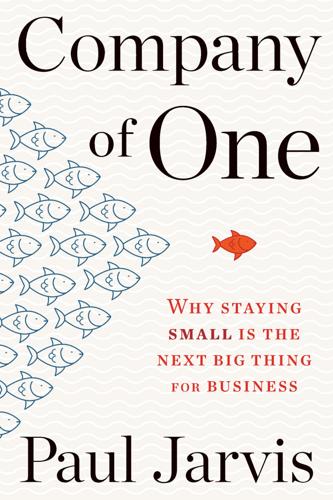
Company of One: Why Staying Small Is the Next Big Thing for Business
by
Paul Jarvis
Published 1 Jan 2019
A well-cited 2003 study of college students at the University of Quebec by Robert Vallerand found that they were more passionate about sports, arts, and music than anything they were studying. Unfortunately, only 3 percent of all jobs can be found in the sports, music, and art industries. And just because you’re passionate about, say, tennis doesn’t mean you can become the next Serena Williams, no matter how hard you try. “Follow your passion” is irresponsible business advice. Barbara Corcoran, a real estate investor and a “shark” on the popular television show Shark Tank, said that she didn’t follow her passion; instead, she discovered it by accident as she worked her ass off. Her passion came after her hard work—as a result of it—not the other way around.
…
When you focus on solving problems or on making a difference, passion may follow, because you’re actually involved in the work you’re doing instead of just dreaming that you might be passionate about something. Cal Newport, the best-selling author of So Good They Can’t Ignore You, argues that passion is the side effect of mastery. To Newport, following your passion is fundamentally flawed as a career strategy because it fails to describe how most successful people ended up with compelling careers and can lead to chronic job-shifting and angst when your reality falls short of your passionate dream for your career. Newport believes that we need to be craftspeople, focused on getting better and better at how we use our skills, in order to be valuable to our company and its customers.
…
Engaging work comprises four key components: clearly defined assignments, tasks you excel at, performance feedback, and work autonomy. All this being said, countless books, bloggers, and business leaders will continue to tell you that the key ingredient to a happy, meaningful life is to find the courage to follow your passion. This call is alluring, especially when it seems like others have simply packed up their nine-to-five lives, jumped headfirst into their passions, and ended up thriving. But what I’ve noticed is that there are two key ingredients that most successful businesspeople don’t talk about when they’re giving keynote speeches about how smart they were to make their leap into a more passion-filled work life.
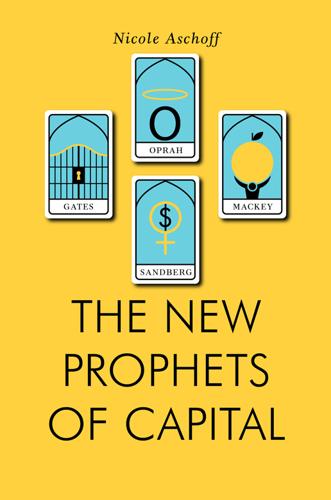
The New Prophets of Capital
by
Nicole Aschoff
Published 10 Mar 2015
We spend years acquiring social capital (connections, access to networks) and cultural capital (skills and education) so we can find a job we love and hopefully keep a roof over our heads. The “do what you love” message is at the heart of the work-identity fusion. It advises you to follow your passion. If you’re unhappy, it’s because you’re not following your passion. If your job sucks, you’re at the wrong job. Video blogger and social media guru Gary Vaynerchuk’s famous TED Talk is a “shot in the arm” for those pining for a more fulfilling life: There are way too many people in this room right now that are doing stuff they hate.
…
In 2011, Fox Searchlight Pictures was charged with violating the Fair Labor Standards Act, and since then similar lawsuits have been filed against other companies, including Warner Music Group, Atlantic Music, and publishing houses Condé Nast and Hearst Corporation. In October 2014, NBC Universal settled a class-action lawsuit brought by a group of its interns for $4.6 million. Following your passion and doing what you love may also require you to forgo job stability and long-term employment on the always changing, always moving road to self-actualization. But job stability is rare these days: The average Millennial spends only 2.6 years at a company today. Some 30 percent of the US workforce is contingent labor, and by some estimates, 40 to 50 percent of jobs that produce an income will be organized as short-term, contract work by 2020.
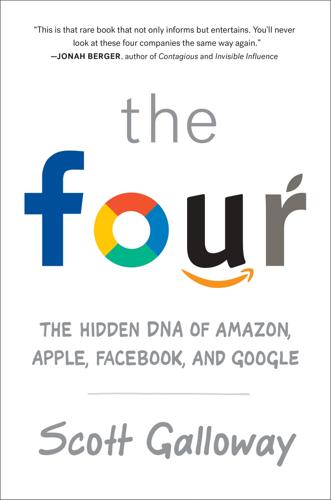
The Four: How Amazon, Apple, Facebook, and Google Divided and Conquered the World
by
Scott Galloway
Published 2 Oct 2017
If your boss isn’t fighting for you, you either have a bad boss or you are a bad employee. Manage Your Career Take responsibility for your own career, and manage it. People will tell you to “follow your passion.” This, again, is bullshit. I would like to be quarterback for the New York Jets. I’m tall, have a good arm, decent leadership skills, and would enjoy owning car dealerships after my knees go. However, I have marginal athletic ability—learned this fast at UCLA. People who tell you to follow your passion are already rich. Don’t follow your passion, follow your talent. Determine what you are good at (early), and commit to becoming great at it. You don’t have to love it, just don’t hate it.
…
You don’t have to love it, just don’t hate it. If practice takes you from good to great, the recognition and compensation you will command will make you start to love it. And, ultimately, you will be able to shape your career and your specialty to focus on the aspects you enjoy the most. And if not—make good money and then go follow your passion. No kid dreams of being a tax accountant. However, the best tax accountants on the planet fly first class and marry people better looking than themselves—both things they are likely to be passionate about. Seeking Justice If you are seeking justice, you won’t find it in the corporate world.

Lifestyle Entrepreneur: Live Your Dreams, Ignite Your Passions and Run Your Business From Anywhere in the World
by
Jesse Krieger
Published 2 Jun 2014
Before long I was studying for my Series 7 & 63 securities licenses to become an investment banker with a boutique investment bank that offered me a VP of Business Development title in exchange for merging my consulting practice with them. I accepted. One of my heroes has always been Steve Jobs, founder of Apple and Pixar. In a commencement speech at Stanford University he said that you can only connect the dots looking backwards. That following your passion can lead you to unexpected places, studying or working on projects that seem disconnected or random. But looking backwards, after the fact, there is a common thread that connects all of those experiences together and you’ll find that you got just the right information and experiences to prepare you for the next round of challenges and opportunities.
…
The idea was to take six somewhat ordinary guys and break all the boundaries of what’s possible in terms of lifestyle. From fashion consults and approaching attractive women in the streets to customized fitness programs and business mentoring, Project Rockstar was 56 days that challenged and replaced every conception of what I thought was possible! When you follow your passions, wherever unexpected places they may lead, you will inevitably stumble across some of your life purposes. I began Project Rockstar as an introvert, determined to become wealthy at all costs and finished a new man. No more anxiety about talking to strangers or speaking in front of groups and my conception of wealth transformed as well; now I value my time and mobility above just an ever-increasing bank balance.
…
The weekend getaway to Necker Island was part of a “Mastermind” group he joined hosted by Joe Polish, who has raised millions for Branson’s Virgin Unite charity. Taking his own advice, Akira joined the group to continue his own personal development and ended up partnering with Richard Branson to grow Virgin Unite Japan! So what is Akira’s advice for aspiring Lifestyle Entrepreneurs around the world? “Follow your passion, invest in your learning and learn from the best. Spend time with people who you want to become, be humble and be honest and do it right now!!” TIME TO GO SUPERNOVA! Firing on All Cylinders Discovering your identity and identifying the centerpiece activities that give you the greatest satisfaction puts you ahead of so many others who just drift through life without taking ownership of their desires.
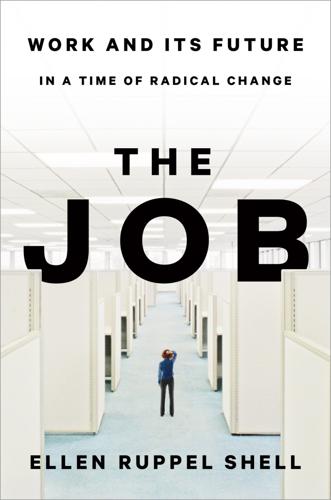
The Job: The Future of Work in the Modern Era
by
Ellen Ruppel Shell
Published 22 Oct 2018
“burdens to be escaped as promptly as possible” Mihaly Csikszentmihalyi, Flow: The Psychology of Optimal Experience (New York: Harper Perennial Modern Classics, 2008), 149. “In the glorification of ‘work’ ” Friedrich Nietzsche, A Nietzsche Reader (London: Penguin UK, 2003), p. 213. the term follow your passion Google Ngram Viewer, Google Books, accessed February 3, 2018, https://books.google.com/ngrams/graph?content=follow+your+passion&year_start=1980&year_end=2018&corpus=0&smoothing=3&share=&direct_url=t1%3B%2Cfollow%20your%20passion%3B%2Cc0. Jobs’s speech available at news.stanford.edu/2005/06/14/jobs-061505. “You’ve got to find what you love” “ ‘You’ve Got to Find What You Love,’ Jobs Says,” Stanford News, June 14, 2005, https://news.stanford.edu/2005/06/14/jobs-061505.
…
Thus a society in which there is continual hard work will have more security: and security is now worshipped as the supreme divinity. As Nietzsche implied and Csikszentmihalyi acknowledged, most of us are dissatisfied with our jobs, a matter made all the more complicated—and guilt provoking—by the modern expectation that we feel passionate about them. A search of Google Books’ Ngram Viewer finds that the term follow your passion appeared nearly 450 times more frequently in 2008 than it did in 1980, when it was barely used at all. Think back to that scene in Girls where the heroine—a college graduate—gets turned down for a job frosting cupcakes because, well, she doesn’t express enough passion for frosting cupcakes.
…
After all, Jobs’s first passion was Zen Buddhism, but he didn’t make a career of it. Does that mean he “settled” for a life in IT? Is Jobs really advising us to pursue our passions in the face of insolvency? Or should we discipline ourselves to be—or pretend to be—passionate about a paying job that holds no relation to our true passions? The admonishment to “follow your passion” seems at once comforting and daring, as though we can succeed in the conventional sense while at the same time throwing convention to the winds. While on its face extremely appealing, such advice relies on the slippery assumption that each of us is endowed with a passion that can—with hard work, discipline, and determination—be channeled into a remunerative career.
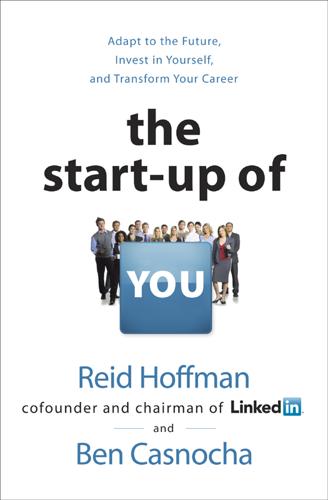
The Start-Up of You: Adapt to the Future, Invest in Yourself, and Transform Your Career
by
Reid Hoffman
and
Ben Casnocha
Published 14 Feb 2012
Just because you’re good at something (assets) that you’re really passionate about (aspirations) doesn’t necessarily mean someone will pay you to do it (market realities). After all, what if someone else can do the same thing for lower pay or do it more reliably? Or what if there’s no demand for the skill to begin with? Not much of a competitive advantage. Following your passions also doesn’t automatically lead to career flourishing. What if you’re passionate but not competent, relative to others? Finally, being a slave to market realities isn’t sustainable. A shortage of nurses in hospitals—meaning there’s demand for credentialed nurses—doesn’t mean you should get on the nursing track.
…
Habit number two of Stephen Covey’s Seven Habits of Highly Effective People is, “Begin with the end in mind”: you should produce a personal mission statement that puts your goals in focus. In The Purpose-Driven Life, Rick Warren advances the idea that each of us has a God-given purpose for being on this planet. The primary message of these books (of which there are more than 50 million copies in circulation) and countless others is to listen to your heart and follow your passion. Find your true north by filling out worksheets or engaging in deep, thoughtful introspection. Once you’ve got a mission in mind, these books urge, you’re supposed to develop a long-term plan for fulfilling it. You’re supposed to craft detailed, specific goals. You’re urged to figure out who you are and where you want to be in ten years, and then work backward to develop a roadmap for getting there.

Inspire Your Home
by
Farah Merhi
Published 22 Oct 2019
I knew I wanted to help others with the home design process. Seven years later here I am, still pinching myself that this is real. This book is obviously about helping you love and enjoy your home, but it’s also about sharing what I’ve learned on my journey. My goal is to help inspire and encourage you to follow your passion and dreams no matter how scary it may seem. The unknown can be terrifying, but I encourage you to dig deep and build the courage to take that first step. Walk away from the fear bubble and toward what could be your own success story. If you’re to take anything away from this book, it’s that living our best lives starts in our home.
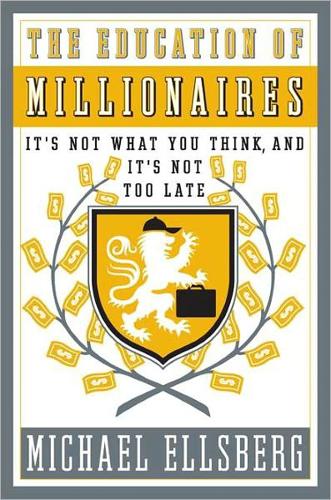
The Education of Millionaires: It's Not What You Think and It's Not Too Late
by
Michael Ellsberg
Published 15 Jan 2011
If you’re not particularly passionate about accounting, corporate management, law, or engineering (the traditional professions), and you go into those fields to please your parents, or to placate your own fears about the risks of following your creative passions, it seems very unlikely to me that you’ll end up happy with your career choice. You will always be plagued by a nagging sense of “What if?” Sure, there are a lot of risks of following your passions—the risk that you’ll have to move back into your parents’ basement as an adult, for example, or face near death as a “starving artist.” But, as Randy Komisar points out in his book The Monk and the Riddle, there are also a lot of unacknowledged risks to not following your passions, of sticking too close to the beaten path in the name of safety and predictability. These include: “[T]he risk of working with people you don’t respect; the risk of working for a company whose values are inconsistent with your own; the risk of compromising what’s important; the risk of doing something that fails to express—or even contradicts—who you are.
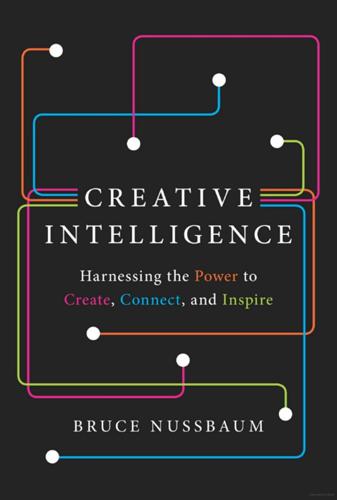
Creative Intelligence: Harnessing the Power to Create, Connect, and Inspire
by
Bruce Nussbaum
Published 5 Mar 2013
It’s that secret hobby or that thing you used to be really good at, or that new approach at work that you feel would be so much better than what everyone is doing now. It’s that idea that you have about a product that your friends would really love to try if they could. Much has been written about the importance of following your passion, but anyone who’s juggling life’s many demands—moving up the career ladder, raising children, making ends meet in a tough economy—might wonder how to find the time. But a quick glance on Kickstarter will tell you that following your passion to create something can be a very smart investment. Moreover, that thing that electrifies you, that you can’t stop talking or thinking about, is what can draw an audience to you.
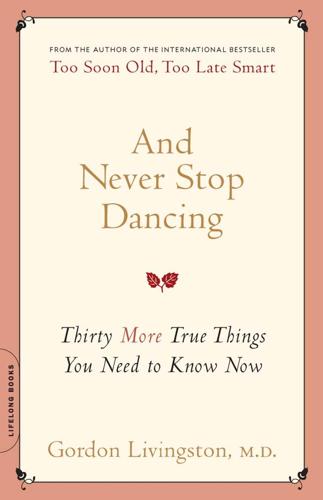
And Never Stop Dancing: Thirty More True Things You Need to Know Now
by
Gordon Livingston
Published 15 Feb 2006
How much better received we would be if we simply told our stories and left the moral for our listeners to divine. In writers’ workshops the operative instruction is “show, don’t tell.” This implies that we learn best about values by seeing how other people have expressed what they believed in by their actions and not by being told to “follow your passion,” or “do unto others . . . ,” or “live an honest life.” Most of us know what we should do; we just need models of how those who have gone before us have reified their beliefs. It’s not surprising that when we contemplate our mortality we tend to feel a little desperate about being remembered.
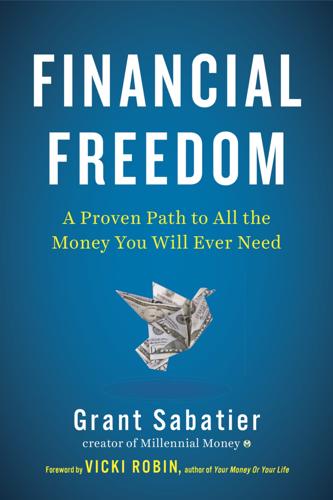
Financial Freedom: A Proven Path to All the Money You Will Ever Need
by
Grant Sabatier
Published 5 Feb 2019
Once you reach the point where you no longer have to trade your time for money, you can choose to spend that time however you please. When you have enough (or even just close to enough!), you can quit the higher-paying job you hate to take a lower-paying one that is meaningful to you. You can explore, grow, give back, follow your passions, and find new passions. You can travel the world, pick up a new hobby, learn a new skill, volunteer—the possibilities are infinite. Anita retired at thirty-three so she could sleep in every day and travel the world without having to negotiate vacation days with her boss or worry about missing an important email.
…
These types of businesses are great for early retirement because you can build a passive income business that generates enough or more than enough money to cover your monthly expenses—potentially giving you the ability to “retire” sooner or at least take a mini retirement of a few months or years to follow your passions. Remember that any amount of consistent stable recurring monthly income will reduce your number and could even cover your entire monthly expenses. When evaluating passive income opportunities, focus on those things that people will always need, not just a fad. For example, people will always need to eat, sleep, get their dogs walked, find babysitters, get their lawns mowed, and travel from point A to point B.
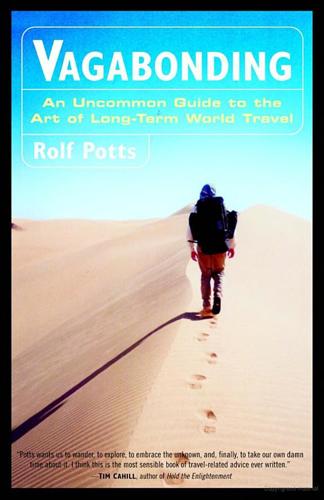
Vagabonding: An Uncommon Guide to the Art of Long-Term World Travel
by
Rolf Potts
Published 24 Dec 2002
Ultimately, you may well discover that vagabonding on the cheap becomes your favorite way to travel, even if given more expensive options. Indeed, not only does simplicity save you money and buy you time; it also makes you more adventuresome, forces you into sincere contact with locals, and allows you the independence to follow your passions and curiosities down exciting new roads. In this way, simplicity — both at home and on the road — affords you the time to seek renewed meaning in an oft-neglected commodity that can’t be bought at any price: life itself. Tip Sheet RESOURCES FOR LIFESTYLE SIMPLICITY Your Money or Your Life: Transforming Your Relationship with Money and Achieving Financial Independence, by Joe Dominguez and Vicki Robin (Penguin USA, 1999) This bestselling book uses a nine-step process to demonstrate how most people are making a “dying” instead of a living.
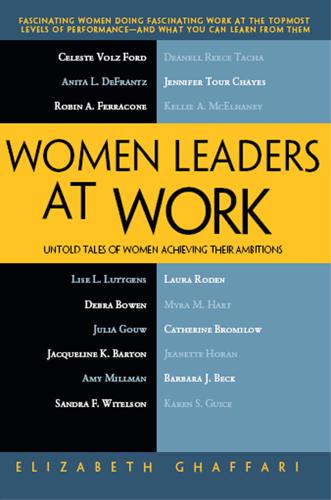
Women Leaders at Work: Untold Tales of Women Achieving Their Ambitions
by
Elizabeth Ghaffari
Published 5 Dec 2011
It wasn’t things that were said or done so much as awkwardness. There was never any intent to be deliberately cruel. There is much less of that awkwardness today. And there is a greater awareness today of things that are appropriate to say or not say. Ghaffari: What key advice would you give to other women? Ford: Follow your passion. If you enjoy doing something, follow that passion. Remove all the obstacles and never give up. Persistence really does pay off. Every year there are a whole new set of challenges. If you’re still pursuing those cool and interesting projects that you have a passion around, you have to just remove the obstacles that get in the way.
…
It’s that my husband and I had this wonderful kid, and together we have this amazing family that’s absolutely important to both of us. The other side is the women and men that I have trained in my laboratory—my scientific children. That’s the flip side. Ghaffari: Is there anything you would say to advise young women about their interest in science or math? Barton: Do what you love. Follow your passion. And, if you love doing science, you can do it. There’s no reason why you can’t. So, do what you love, because whatever you love doing, you’ll be good at it. Amy Millman President, Springboard Enterprises Born June 1954 in Brooklyn, New York. For more than a decade, Amy Millman has been president and principal advocate of Springboard Enterprises—the premier venture-catalyst platform for building women-led businesses.
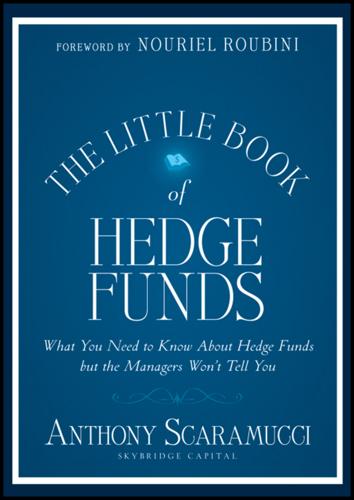
The Little Book of Hedge Funds
by
Anthony Scaramucci
Published 30 Apr 2012
If you are looking to chase money, fortune, or fame and don’t think you have the stomach for managing money or being a part of an asset management organization, then hopefully you will go back to your art or poetry class when you are done reading this chapter. As I tell any young person I advise or mentor: follow your passions and do want you really want to do. Don’t chase what you think you should do; it will only delay your journey to job and life fulfillment. Wall Street’s Mass Migration Growing up, it was fairly simple. Whenever I was asked what I wanted to be when I grew up, my answer was always the same: I wanted a job that would give me and my family financial security.
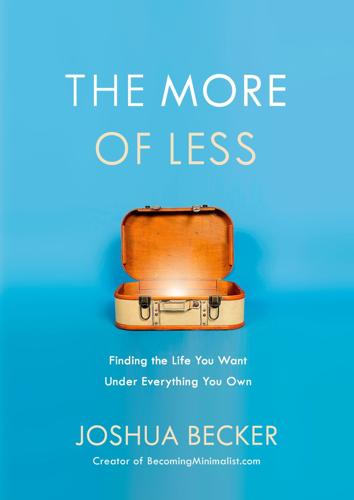
The More of Less: Finding the Life You Want Under Everything You Own
by
Joshua Becker
Published 2 May 2016
You may have a large family, a small family, or no family. You may live on a farm, in a house, or in a studio apartment. You love music, movies, sports, or books. You practice art, or maybe you don’t. Maybe you believe you were put on this earth to host beautiful dinner parties or offer your home as a place of respite and retreat for others. Follow your passions to the best of your ability with the resources you possess. Fulfill your purpose with great focus by removing the distractions keeping you from it. And find a style of minimalism that works for you, one that is not cumbersome but freeing. Be aware that your individual definition of minimalism will not emerge overnight.
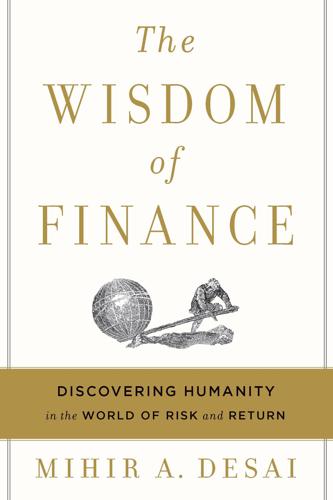
The Wisdom of Finance: Discovering Humanity in the World of Risk and Return
by
Mihir Desai
Published 22 May 2017
“Shareholder Perceptions of the Changing Impact of CEOs: Market Reactions to Unexpected CEO Deaths, 1950–2009.” Strategic Management Journal, March 2016. In exploring the parallels of the principal-agent framework to our lives, I employ Luna, Elle. The Crossroads of Should and Must: Find and Follow Your Passion. New York: Workman Publishing, 2015; Miller, Alice. The Drama of the Gifted Child. New York: Basic Books, 1996; Joyce, James. Ulysses. Paris: Sylvia Beach, 1922; Grosz, Stephen. The Examined Life: How We Lose and Find Ourselves. New York: W. W. Norton & Company, 2013; and Forster, E. M. A Room with a View.
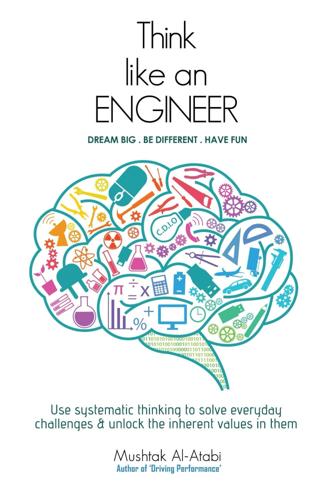
Think Like an Engineer: Use Systematic Thinking to Solve Everyday Challenges & Unlock the Inherent Values in Them
by
Mushtak Al-Atabi
Published 26 Aug 2014
Highly recommended to anyone who aspires to live a meaningful and productive life.” Arnold Teo, Shell (Malaysia) “There are many books that talk about success and how to achieve it. What Prof. Mushtak has brought forward in this book is a unique view of how engineers think and what makes engineers successful. In summary, it was never more than following your passion relentlessly. I've always been a great fan of Prof. Mushtak and I'm absolutely pleased that he has taken this mammoth effort of documenting his lifelong journey of discovering what makes engineers tick.” Harvinder Singh, Chairman and Group Managing Director, PSI inCONTROL Sdn. Bhd. “Engineers are known as problem-solvers.
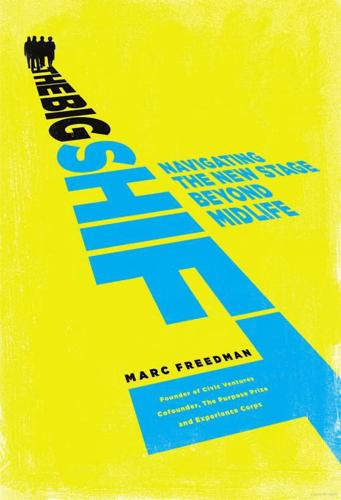
The Big Shift: Navigating the New Stage Beyond Midlife
by
Marc Freedman
Published 15 Dec 2011
Senescence: The Last Half of Life. New York: D. Appleton, 1922. Hall, Stephen S. Wisdom: From Philosophy to Neuroscience. New York: Alfred A. Knopf, 2010. Handy, Charles. The Age of Unreason. Boston: Harvard Business School Press, 1989. ———. The Hungry Spirit. New York: Broadway Books, 1998. Hannon, Kerry. What’s Next? Follow Your Passion and Find Your Dream Job. San Francisco: Chronicle Books, 2010. Hareven, Tamara K. “The Last Stage: Historical Adulthood and Old Age.” Daedalus 105, no. 4 (1976): 13–27. “The HBR List: Breakthrough Ideas for 2005.” Harvard Business Review, February 2005. Hine, Thomas. The Rise and Fall of the American Teenager.
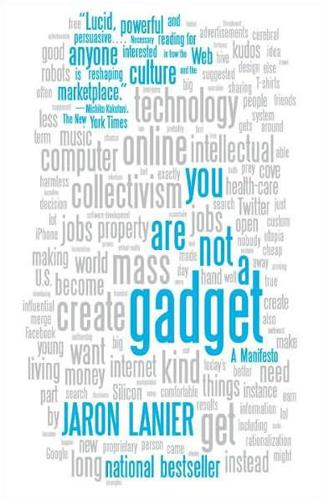
You Are Not a Gadget
by
Jaron Lanier
Published 12 Jan 2010
Doesn’t it really become about you instead of the cause at that point? Do you go around blowing up other people’s toothbrushes? Do you think the bacteria you saved are morally equivalent to former slaves—and if you do, haven’t you diminished the status of those human beings? Even if you can follow your passion to free and protect the world’s bacteria with a pure heart, haven’t you divorced yourself from the reality of interdependence and transience of all things? You can try to avoid killing bacteria on special occasions, but you need to kill them to live. And even if you are willing to die for your cause, you can’t prevent bacteria from devouring your own body when you die.

The Emotionally Absent Mother: A Guide to Self-Healing and Getting the Love You Missed
by
Jasmin Lee Cori
Published 13 Sep 2010
In an interesting twist, this is often paired with being an underachiever rather than an overachiever. People who need to do everything well don’t have permission to fail or to try new things that require a learning curve, and so they stop themselves before they begin. Difficulty finding your authentic voice and following your passion Without a champion or a cheerleader, without mirroring, without unconditional acceptance, it’s much harder to find your authentic self-expression. Neglect can be a setup for a lost self and lost life. What helps While you can never go back to being a baby and get the holding you missed, there is much that you can do to make up for insufficient mothering.
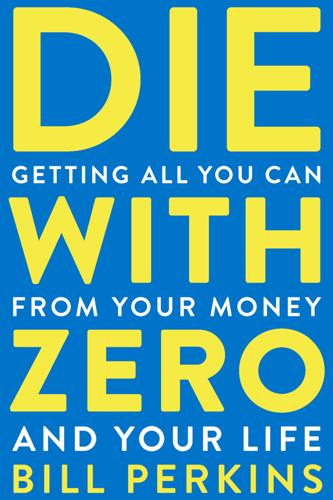
Die With Zero: Getting All You Can From Your Money and Your Life
by
Bill Perkins
Published 27 Jul 2020
Would you do that only because you weren’t counting on that extra life? Why take that easy-come, easy-go attitude? It’s the same with any money you receive. “Maximizing your life” doesn’t care where the money came from. Whether you earn it from a job you love or you inherit it from your great-granddad, whether the money is a by-product of following your passion or of being a member of the lucky-sperm club, once it’s given to you it becomes yours. And once it’s yours, it now represents hours of your life, which you can exchange for whatever will help you live the best life you can. If dance is your life, and you happen to also earn money from dancing, go ahead and spend it on dance-related experiences: Splurge on private lessons with the best dance teachers if that’s what you value, or hire someone to clean your place so you have more time to pursue dance.

Cashing Out: Win the Wealth Game by Walking Away
by
Julien Saunders
and
Kiersten Saunders
Published 13 Jun 2022
Over time, some even tend to define themselves by their struggle and take tremendous pride in their survival skills. Having lived through it and having several friends and family members who still are, we completely empathize with those in this predicament. Look, we believe in the principles we’re outlining in this book. But we won’t join the chorus of gurus chanting that all you need to do is follow your passions and pick yourself up by your bootstraps. While there are certainly examples of remarkable success to point to, the unfortunate reality is that for some people financial independence will always be a dream out of reach. For some, their circumstances are so dire it requires a comprehensive plan, a social safety net, a complete uprooting of one’s life, and good old-fashioned luck.
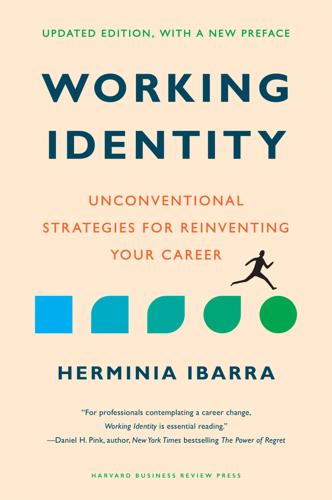
Working Identity, Updated Edition, With a New Preface: Unconventional Strategies for Reinventing Your Career
by
Herminia Ibarra
Published 17 Oct 2023
As in a Darwinian natural selection process, he first increased the variety of possibilities, without even getting rid of the less desirable ones (he gave MCG and TR Capital a second and even a third try), before selecting some for closer exploration (the scuba diving) and finally settling on a new career in a fresh and compelling setting, working for someone he admired. Gary’s set of possible selves is typical in its number and range. It includes a “ditch it all and open a tour-guide business in the south of France with my wife” self; a socially respectable “MCG partner” self that his parents endorsed; a youthful and outdoorsy, “follow your passion” self who renounces convention and opens a scuba business; a “responsible spouse and future parent” self who wants to make good dual-career decisions; a “corporate drone at age fifty, full of regrets” self; an “apprentice” self who learns at the elbow of an admired entrepreneur; and a conservative “go to TR Capital where I can combine my backgrounds in banking and consulting” self.
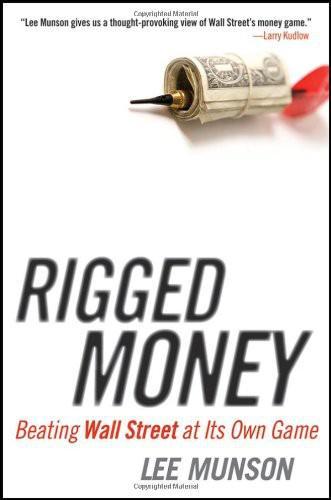
Rigged Money: Beating Wall Street at Its Own Game
by
Lee Munson
Published 6 Dec 2011
I began studying, first for the Certified Financial Planning designation and then to earn a Chartered Financial Analyst charter. I bought my first home and had my first child, a daughter. Will I ever be able to explain my lapse in judgment to her? I want to teach my daughter that even if certain people in society disagree with you or what you do—follow your passion. You respect the fact that some people are ignorant and will never approve. In essence, I want to tell her: don’t apologize and don’t back down. Now that I’m older, I like what Business Insider did without contacting me in publishing a 10-year flashback of the ordeal. That was the defining moment because it reminded me of something.
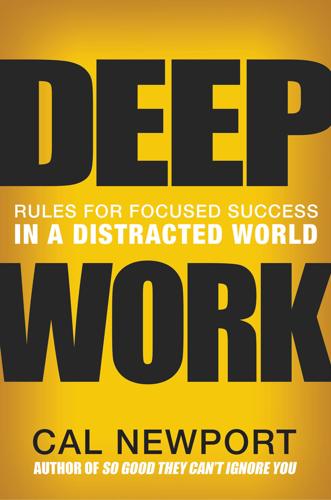
Deep Work: Rules for Focused Success in a Distracted World
by
Cal Newport
Published 5 Jan 2016
It’s here that some might respond that their knowledge work job cannot possibly become such a source of meaning because their job’s subject is much too mundane. But this is flawed thinking that our consideration of traditional craftsmanship can help correct. In our current culture, we place a lot of emphasis on job description. Our obsession with the advice to “follow your passion” (the subject of my last book), for example, is motivated by the (flawed) idea that what matters most for your career satisfaction is the specifics of the job you choose. In this way of thinking, there are some rarified jobs that can be a source of satisfaction—perhaps working in a nonprofit or starting a software company—while all others are soulless and bland.
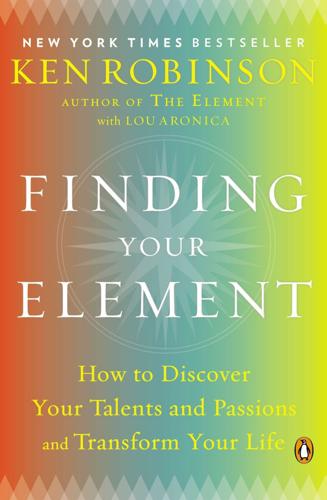
Finding Your Element: How to Discover Your Talents and Passions and Transform Your Life
by
Ken Robinson
and
Lou Aronica
Published 14 Jul 2013
You should be inspired by those who are further down the road than you are, not discouraged by how far you have to go. If you love what you do, you should enjoy the journey of improvement and not be frustrated by having to make it. WHAT IF WHAT I LOVE IS MORALLY DUBIOUS? I am sometimes asked if it’s all right to follow your passion if it’s for something unsavory or harmful, like arson or cruelty. I’m sure you can think of your own examples. No, it’s not. Let me qualify that answer. All my arguments for the Element have to be framed within an acceptable moral code. Moral standards can vary enormously between cultures and over time.
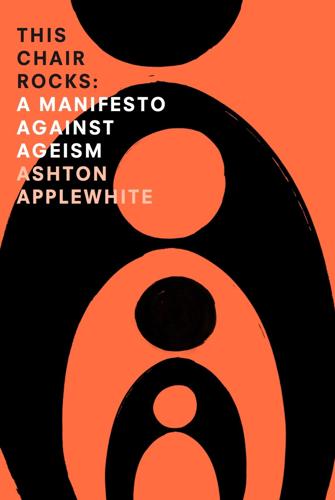
This Chair Rocks: A Manifiesto Against Ageism
by
Ashton Applewhite
Published 10 Feb 2016
I don’t love the “still” in the title of Deirdre Fishel’s book and documentary, Still Doing It: The Intimate Lives of Women over Sixty, but I do love her call to arms: “Women over sixty are still doing it—it being whatever turns them on, from doing humanitarian work to buying a dildo, from climbing Machu Picchu to having the best orgasms of their lives. Sex is so much more than an act —it’s a metaphor for being alive … Women of all ages, stand up! Follow your passions! Fall in love! Get laid!”21 That does not mean that women “should” stay sexually active, or feel deficient if they abstain. There’s no such thing as “normal”—at any age—and no single standard to which we should hold ourselves, especially as we grow more confident in our self-knowledge and diverse in our desires.
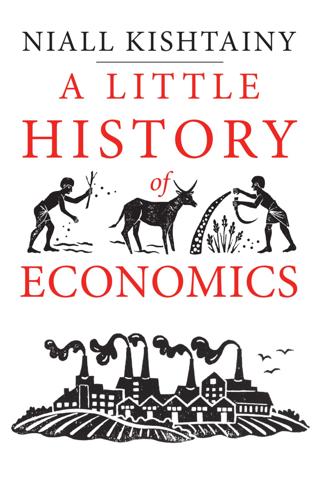
A Little History of Economics
by
Niall Kishtainy
Published 15 Jan 2017
And in commercial society, the rich and powerful do everything they can to protect their position and end up trampling on the poor. Fourier proposed a new society. He called it a system of harmony. He imagined people living in small communities called ‘phalansteries’. The phalanstery would be a rectangular building containing workshops, libraries, even an opera house. It would be a place where you’d be able to follow your passions to the full. Fourier talked about familiar passions like friendship, ambition and the love of food and music. There was also the passion of the ‘butterfly’, the love of flitting between lots of different activities, and even that of the ‘cabalist’, a fondness for plots and intrigue. The passions could combine to create 810 human character types, said Fourier.

Crushing It!: How Great Entrepreneurs Build Their Business and Influence—and How You Can, Too
by
Gary Vaynerchuk
Published 30 Jan 2018
Andy Frisella, founder of nutrition and fitness brands Supplement Superstores and 1st Phorm, explained it best: You’re going to go through a time where you’re not going to make any money. It’s not going to be a week, it’s not going to be a month, it’s not going to be one year. It’s going to be years. And during that time, if you don’t love what you do, it’s going to be very hard to stick it out. That is something that people don’t understand when they hear, “Follow your passion.” They hear rainbows, unicorns, bullshit. But the truth of it is that it’s important, because if you don’t enjoy what you’re doing, you’re going to be that much more likely to quit when shit’s hard. When you’re passionate about what you’re offering the world, whether it’s a sales training method or vintage toys, the quality of both your product and your content will more likely be what it needs to be to get noticed, valued, and talked about.
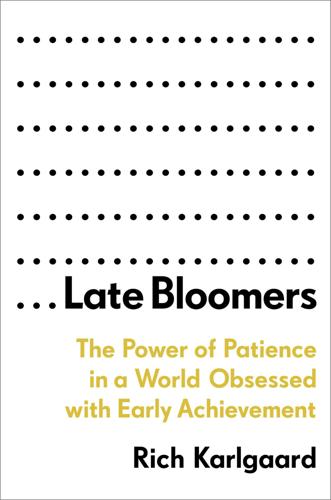
Late Bloomers: The Power of Patience in a World Obsessed With Early Achievement
by
Rich Karlgaard
Published 15 Apr 2019
Christine Hassler’s 20 Something Manifesto is an anthology that explores the experiences of young adults, including what she calls the Expectation Hangover. “It’s somewhat terrifying,” said a twenty-five-year-old named Jennifer, “to think about all the things I’m supposed to be doing in order to ‘get somewhere’ successful: ‘Follow your passions, live your dreams, take risks, network with the right people, find mentors, be financially responsible, volunteer, work, think about or go to grad school, fall in love and maintain personal well-being, mental health and nutrition.’ When is there time to just be and enjoy?” A twenty-four-year-old from Virginia lamented, “There is pressure to make decisions that will form the foundation for the rest of your life in your 20s.
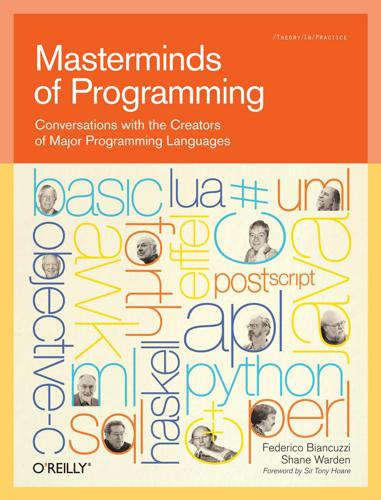
Masterminds of Programming: Conversations With the Creators of Major Programming Languages
by
Federico Biancuzzi
and
Shane Warden
Published 21 Mar 2009
I gave some lectures at Cal-Poly and USC a few weeks ago. I’ve had some followups from some of those students, so I’ll offer the same answer that I offered for them back then. The first is follow your passion and be sure you have fun. There is certainly value in pursuing a career and pursing a livelihood but in the end development and all the things we do, it’s a human experience and you want to be a whole person in this process. So enjoy, live fully, gain life experiences; please do that. Follow your passion because it’s easy to find really crappy jobs out there where you can find yourself in a place you just hate. Please don’t do that. That’s what I encourage.
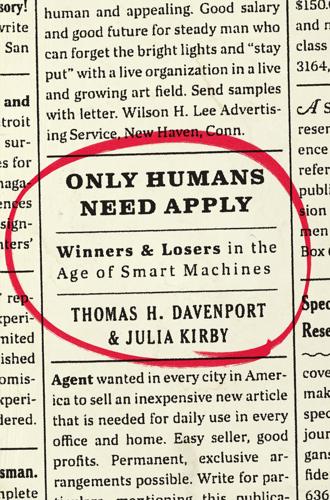
Only Humans Need Apply: Winners and Losers in the Age of Smart Machines
by
Thomas H. Davenport
and
Julia Kirby
Published 23 May 2016
Staci Jennifer Riordan, of Fox Rothschild, spent years working in the fashion business and now specializes in fashion law. M. Dru Levasseur, whose own female-to-male transition opened his eyes to discrimination based on gender identity, is today’s best-known practitioner of transgender law. Thus, finding a narrow specialization is largely a matter of following your passion, which has always been an important factor in career choice. But some passions are more likely to succeed than others, so some rational analysis about your narrow field of choice is also a good idea. What you need to examine is whether, in that famous cliché from Wayne Gretzky, you are skating where the puck is going to be.
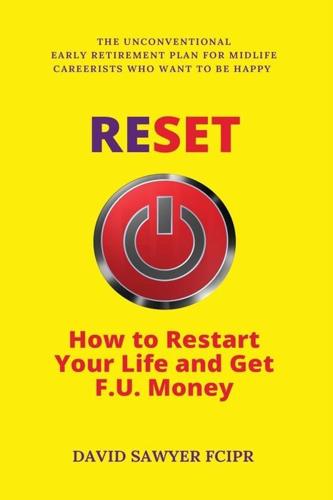
Reset: How to Restart Your Life and Get F.U. Money: The Unconventional Early Retirement Plan for Midlife Careerists Who Want to Be Happy
by
David Sawyer
Published 17 Aug 2018
Inspiration comes from everywhere, especially from people you know. A few Christmases ago, a friend who never writes on Facebook revealed in a casual post that she’d read 89 books over the past year. Her enthusiasm inspired me to act: making reading part of my daily routine has transformed my life. Follow your passion; go off at obsessional tangents. Just do it. Harness that enthusiasm now, while you have the bit between your teeth, or you may live to regret it. Brutus expresses it best in Act IV, Scene III of Shakespeare’s Julius Caesar: “There is a tide in the affairs of men, which, taken at the flood, leads on to fortune; omitted, all the voyage of their life is bound in shallows and in miseries.
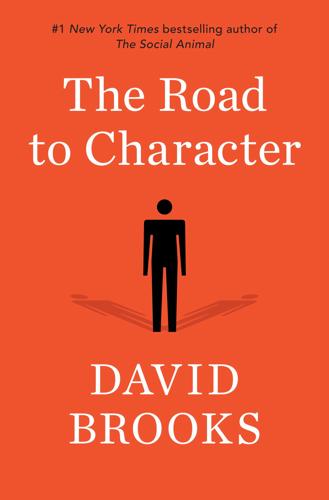
The Road to Character
by
David Brooks
Published 13 Apr 2015
(Though, to be fair, I’m pretty sure the president of Harvard would also rather be Justin Bieber’s personal assistant.) As I looked around the popular culture I kept finding the same messages everywhere: You are special. Trust yourself. Be true to yourself. Movies from Pixar and Disney are constantly telling children how wonderful they are. Commencement speeches are larded with the same clichés: Follow your passion. Don’t accept limits. Chart your own course. You have a responsibility to do great things because you are so great. This is the gospel of self-trust. As Ellen DeGeneres put it in a 2009 commencement address, “My advice to you is to be true to yourself and everything will be fine.” Celebrity chef Mario Batali advised graduates to follow “your own truth, expressed consistently by you.”
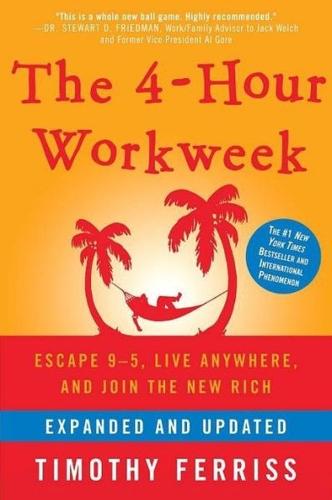
The 4-Hour Workweek: Escape 9-5, Live Anywhere, and Join the New Rich
by
Timothy Ferriss
Published 1 Jan 2007
Crying out of happiness is a perfect illustration of this. The opposite of love is indifference, and the opposite of happiness is—here’s the clincher—boredom. Excitement is the more practical synonym for happiness, and it is precisely what you should strive to chase. It is the cure-all. When people suggest you follow your “passion” or your “bliss,” I propose that they are, in fact, referring to the same singular concept: excitement. This brings us full circle. The question you should be asking isn’t, “What do I want?” or “What are my goals?” but “What would excite me?” Adult-Onset ADD: Adventure Deficit Disorder Somewhere between college graduation and your second job, a chorus enters your internal dialogue: Be realistic and stop pretending.
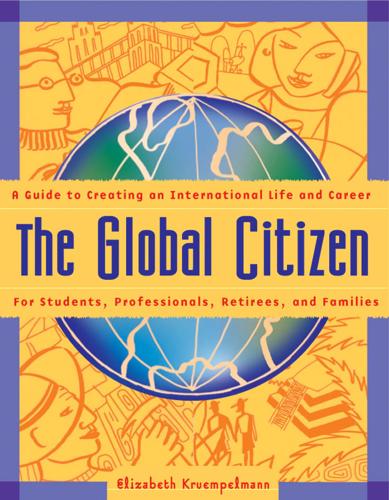
The Global Citizen: A Guide to Creating an International Life and Career
by
Elizabeth Kruempelmann
Published 14 Jul 2002
Thuesen (Dell Publishing, 1993) The sixteen personality types are based on the Myers-Briggs Type Indicator (MBTI) and give an interesting and thorough analysis of how the use of personality typing can be applied to the workplace. U N C O V E R I N G Y O U R G L O B A L PA S S I O N 25 Figure Out What You Love (and Do) Best The best advice that anyone has ever given me (and that I have passed on to others) is simply to “follow your passion.” Do what comes naturally to you, do something that makes you feel fulfilled. At the end of a day’s work you should feel energized; time should have passed by without you even noticing it. Develop and follow a path that allows you to live life the way you want. OK, I know that’s easier said than done—especially if you don’t know yet what your passion is.
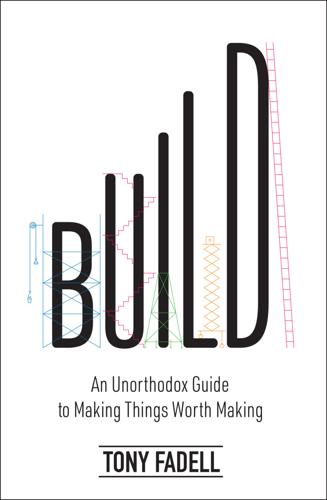
Build: An Unorthodox Guide to Making Things Worth Making
by
Tony Fadell
Published 2 May 2022
Each job took a different angle, a new perspective on the same problem, and eventually I had a rich, 360-degree view of the challenge I wanted to solve and all the possible solutions. The idea was much more precious than the company signing my paychecks. But it’s a balance. With RealNetworks it was just bad juju all around, an immediate loss of trust, but the other companies I worked at for four years, five years, almost a decade. If you’ve found a good opportunity to follow your passions, you should not give up until you’ve tried to make it work at the company you’re at. So if something’s not working, don’t just complain to people who have no power to fix it, then throw up your hands and quit. Even talking to your manager isn’t enough. Especially if it’s your manager that’s the problem.
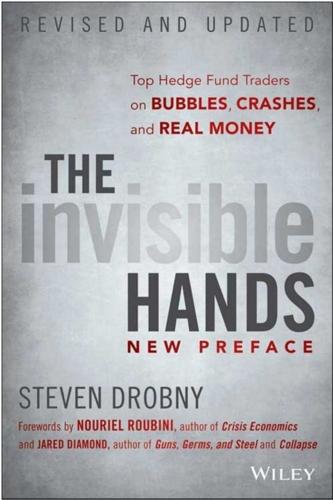
The Invisible Hands: Top Hedge Fund Traders on Bubbles, Crashes, and Real Money
by
Steven Drobny
Published 18 Mar 2010
Longer-dated nominal bonds will obviously be a total catastrophe in an inflation scenario, so you have to be underweight those if you think the risk of inflation is increasing. But the opposite holds true in a deflationary scenario. This game was never meant to be easy. If you were to follow your passion and go deep sea fishing for the next 10 years, and you had to put all of your wealth into one trade, what would it be? Well, I hope I will never have to bet everything on one card without being able to adjust my views for 10 years. But if I had no choice, I would say residential real estate in the U.S., focusing on cheaper markets with rock-bottom prices such as Florida or California—but not the fancy addresses.
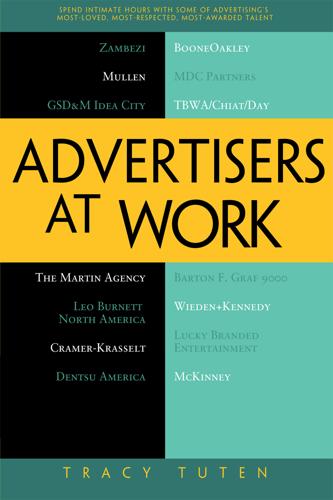
Advertisers at Work
by
Tracy Tuten
Published 28 May 2012
I don’t make firm career plans because I worry it will give me tunnel vision. Have you seen Steve Jobs’ speech to the Stanford graduating class? I’m sure it’s online.5 In it, he talks about how new opportunities will present themselves to you. They will be opportunities that you never thought of. These opportunities occur when you follow your passions. They don’t happen because you followed a career ladder or some predictable schedule for career growth—just when you follow a passion and are committed to excellence in your work. You earn the opportunities with your passion, but you can’t take advantage of them unless you are open and smart enough to recognize the opportunities when they come.
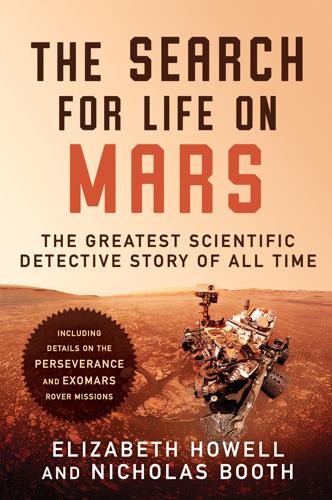
The Search for Life on Mars
by
Elizabeth Howell
Published 14 Apr 2020
Seven months later, Christina Koch and Jessica Meir participated in the first all-female spacewalk in October 2019. Slowly but surely, many of the barriers that Donna Shirley had to face are being removed. In talks, her advice to young girls is simple: “Just do what your heart tells you to do,” she says. “One of the things that I teach in my course is to follow your passion.” Despite the hurdles, she is pleased that the situation has changed for girls who might become the engineers of the future. “What I have ended up being is a role model to everybody else,” she says, even though she did not have similar role models herself. Perhaps today a young girl who wants to fly will be able to explore Mars directly for herself.
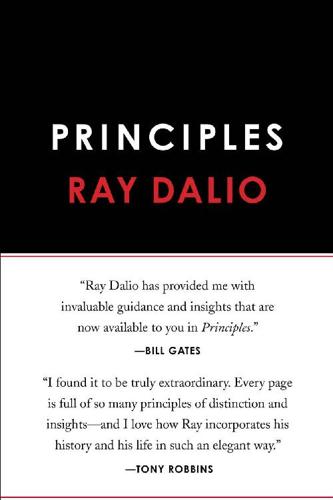
Principles: Life and Work
by
Ray Dalio
Published 18 Sep 2017
Work is either 1) a job you do to earn the money to pay for the life you want to have or 2) what you do to achieve your mission, or some mix of the two. I urge you to make it as much 2) as possible, recognizing the value of 1). If you do that, most everything will go better than if you don’t. Work Principles is written for those for whom work is primarily the game that you play to follow your passion and achieve your mission. * * * 36 We applied these ways of operating to the businesses of investing and managing. In the process of investing I developed a practical understanding of what makes businesses and economies succeed, and in the process of managing my company I had to develop a practical understanding of how to manage businesses well.

The Complete Thyroid Book
by
Kenneth Ain
and
M. Sara Rosenthal
Published 1 Mar 2005
It was a tough sell to a publisher because I was not an M.D. One small publisher in California was willing to take a chance. They had begun a “sourcebook” series and thought I could write The Thyroid Sourcebook. Even if only a handful of readers benefited, I felt it would be well worth the effort. I learned a valuable lesson early in life: follow your passion and it will take care of you. Today, hundreds of thousands of thyroid patients have benefited from that book, which has been updated five times and translated into several languages, including Chinese. Between 1993 and 1996 I created seven health sourcebooks while holding down various writing jobs in advertising and journalism.
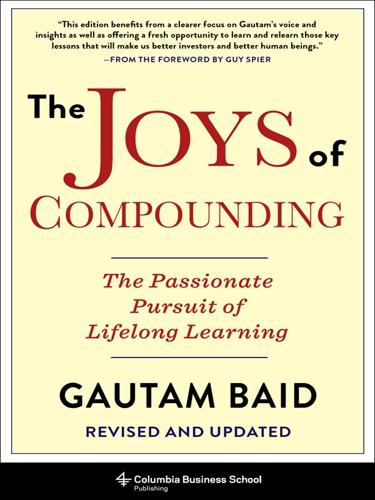
The Joys of Compounding: The Passionate Pursuit of Lifelong Learning, Revised and Updated
by
Gautam Baid
Published 1 Jun 2020
His early passion for money management resulted in his studying, by age eleven, every book the Omaha Public Library had on investing, some of them twice. In an interview with Fortune magazine in 2012, Buffett was asked how other people can “tap dance to work” the way he does. He provided the following answer: “Follow your passion…. I always tell college students to take the job that you would take if you were independently wealthy.”4 By doing that, the logic goes, you’ll bring more energy to your work than anybody else does. There is power in passion. “The truth is, so few people really jump on their jobs, you really will stand out more than you think,” Buffett explains.
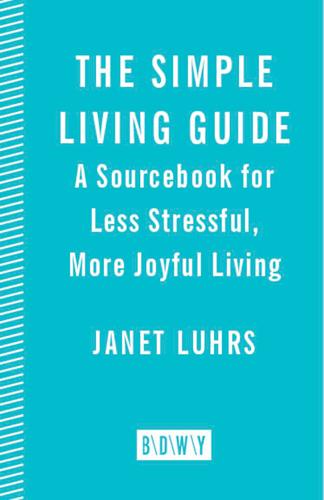
The Simple Living Guide
by
Janet Luhrs
Published 1 Apr 2014
“This has been very powerful for a lot of women whose self-esteem is linked to how they feel about their intelligence.” Another way to turn your passion into a job is by volunteering first. Cecile began another career as director of Women’s Studies at a community college after working first as an unpaid intern. She created the job as part of her internship. “When you follow your passion, you don’t know where it’s going to lead,” Cecile says. “I always tell people to do what you love to do, then figure out how to earn a living from it.” Get Paid for Your Passion There are two ways to get paid for your passion: make it your full-time career or a part-time sideline.
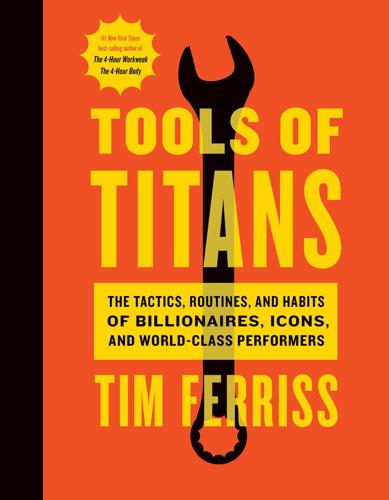
Tools of Titans: The Tactics, Routines, and Habits of Billionaires, Icons, and World-Class Performers
by
Timothy Ferriss
Published 6 Dec 2016
His most famous works are the surprisingly readable Practical Ethics and Animal Liberation. Derek Parfit, who has spent his entire life at All Souls College at Oxford, which is elite even within Oxford. Derek wrote a book called Reasons and Persons, which Will considers one of the most important books written in the 20th century. “Follow Your Passion” Is Terrible Advice “I think it misconstrues the nature of finding a satisfying career and satisfying job, where the biggest predictor of job satisfaction is mentally engaging work. It’s the nature of the job itself. It’s not got that much to do with you. . . . It’s whether the job provides a lot of variety, gives you good feedback, allows you to exercise autonomy, contributes to the wider world—Is it actually meaningful?